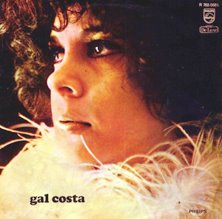I have not yet seen the film version of Atonement. I don’t really plan to, largely because of what the director did with Pride and Prejudice a few years back. Granted, after a TV miniseries so brilliant that there were moments that stood neck and neck with the original novel, one could argue that the only way left to go was down. The film wasn’t a nadir exactly, but it left one wondering why the director killed plausibility by turning Elizabeth into a babe, and Darcy into Heathcliff. But it made me read the novel again and I’m always looking for reasons to re-read Pride and Prejudice. Fine, I will give that Emma is her most perfectly realized novel, Mansfield Park her most public, Sense and Sensibility, her wittiest and Northanger Abbey her kinkiest. But Pride and Prejudice still resonates the most with me because each time I open the book, it’s a different novel.
This time I found myself coming into a new understanding, if not total affection for the least likeable characters, largely because of something that was always present in the novel but that I had not noticed before. Whatever your opinion of the shrieking harpy, Mrs. Bennett, the money hungry yet intellectually bankrupt, Mr. Collins, the sadly cynical best friend Charlotte or the imperial Lady Catherine de Bourgh, they all possess one thing lost on the far more appealing characters. They are the only characters thoroughly aware of the era in which they are living. The closest any main character comes to such wisdom is rude-phase not romantic-phase Darcy.
It turns that even those of us who praise Jane Austen profusely still have loads to learn. For a novel so steadfast in the belief in having it all, great love and loads of money (hello, chick flick) The novel is also blessed with a deep understanding of the real machinations of society, and the economics of love, marriage and sex, so much so that these characters serve to remind us that for the rest of the world things are not so simple, if ever they were.
Take for instance Mrs. Bennett. Very early on in the novel, Austen makes a striking character assessment of her, a technique that would have been condemned in 20th century fiction as “telling.”
Mr. Bennett was so odd a mixture of quick parts, sarcastic humour, reserve, and caprice, that the experience of three and twenty years had been insufficient to make his wife understand his character. Her mind was less difficult to develop. She was a woman of mean understanding, little information, and uncertain temper. When she was discontented, she fancied herself nervous. The business of her life was to get her daughters married; its solace was visiting and news.
No reader in the 19th century would have dismissed Mrs. Bennett as shallow and callous from that sentence, in fact they would have congratulated her for being the only Bennett with her head on straight. The fact is this was a woman saddled with five daughters. Think about that for a second; the paragraph will still be here when you get back. Five daughters, two of which were nigh passing the age of desirability. What’s more, Mr. Collins, the sanctimonious kiss-ass who stood to inherit their estate had made no bones about leaving them to starve should none of the sisters marry him. You can congratulate your smug self that Mr. Bennett so wittily told Elizabeth not to marry Collins, but he had also condemned five women to a life of the destitute and seemed to be quite pleased with himself about the matter. Mrs. Bennett has every right to shriek and scream; the man had in a way destroyed his own children. Mrs. Bennett is not dead set on a wedding because he enjoys wedding cake. She’s thinking about the survival of her children, something Mr. Bennett doesn’t pay much attention to until his loosely run house allows one of his daughters to cut loose.
The same is true for Mr. Collins, reptilian as he may be. A man lucky enough to be blessed with inheritance is not about to squander it taking care of five spinsters, none of whom plans to give him any hand in marriage (or sex if you want to get post modern) in the bargain. Charlotte disappoints Elizabeth when she marries Collins and seems to get her punishment with a life of unhappiness, but again credit Austen with some sense and sensibility. She neither condemns nor condones the marriage, but does make it clear that for a plain, poor woman like Charlotte a fate like hers was an extremely lucky one. Had Austen written a novel that had put forth the Elizabeth-Darcy model as the only legitimate male female relationship, it would have joined all the other bodice rippers of the time that have been forgotten. But Austen has always been keenly up to date on her own society. Something she shared, not in the romantic ideals of her great characters but in the cold practicality of her minor ones, the ones who served to remind us that while love sure is grand, even in the 19th century, it’s all about the bling.






-image007.jpg)

